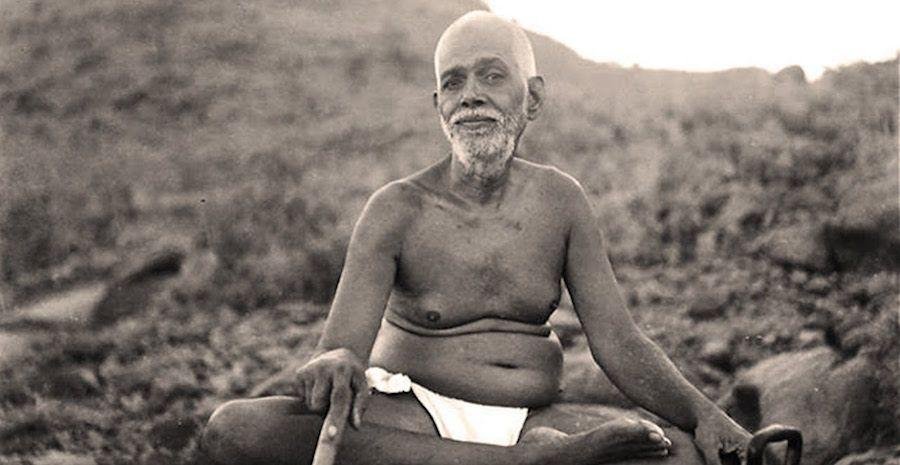
Aham Sphurana, Self Realisation
A Journal of Previously Unpublished Conversations
with
Bhagavan Sri Ramana Maharshi.
This Manuscript was recorded 85 years ago in 1936.
It was offered to the public in August 2021 on Amazon.
Meditation
Q.: I am unable to Realise the Self by means of meditation.
B.: Where are you now? Are you in the Self or out of it? Can there be anything apart from the Self?
Q.: I understand that the Self is non-dual. Yet ignorance prevents me from realising the non-dual Self.
B.: Who is ignorant of what? Are there then two selves, so that one of them can be ignorant of the other?
Q.: I am only a limited being and not the unlimited Self.
B.: Limitation is only a mental concept; it is only an idea in the mind. What is your state in deep sleep? You exist in deep sleep. You also exist now. It is the same you. But the feeling of limitation does not arise in deep sleep. Why?
Q.: Because now my mind is active. In sushupti[deep sleep] the mind was asleep.
B.: There was no mind in sleep. But YOU were there. So, mind comes and goes, but there is no change in That which is actually YOU. YOU, the Self, remain always. The Self remains unaffected whether mind is present or absent.
Q.: I understand all these concepts theoretically. But I am unable to realise my true Self.
B.: Introvert the mind gradually and you will see one day what you really are.
Q.: Is the dawn of realisation gradual or sudden?
B.: Introversion of mind, which is a sine qua non for Realisation, is usually gradual. Realisation is always sudden.
Q.: Meditation is with mind only. That being so, how can it kill the mind itself?
B.: Meditation means sticking to one thought to the exclusion of every other. One particular thought keeps away all others. A distracted mind is weak and filled with numerous thoughts. A strong mind is focused on one particular thought only. Constant meditation transforms the weak mind into the strong mind. The mind is a layer of thought obstructing the Real Self. By constantly sticking with one thought, that one thought also eventually disappears and the enduring background is revealed; this is free from all thought; the background upon which the mind is superimposed is the Beingness of the Self.
Mind in its purity is the same as the Beingness of the Self. The Beingness of the Self is not the same as the Self, in the same way as the rays of the sun are not the sun himself. The feeling of beingness felt by you is only an experience of reflected consciousness. Supposing you stare at a reflection of the sun in a pool of muddy water; this cannot compare with the experience of being the sun himself. To reach that state, one’s bodily and mental identifications must be given up. The ignorant man believes that his self is confined to the body only, whereas the Jnani’s experience is that the body and world cannot remain apart from the Self. The Self of the Jnani is infinite and includes the body also. The blissful peace of the Self is your true nature.
Contrary ideas are only illusory superimpositions. Peace is not to be obtained or procured from somewhere far away through practise. Peace is already there. It is not to be freshly obtained. Then what is the use of practise? It is to give up all your wrong notions; that is all. Your true nature encompasses the three states and extends beyond them. You are really the formless Self. The Self or Heart is all that exists.
The Heart is neither within nor without. It simply IS. It has no second. The mind is the sakti [primordial energy] aspect of the Self. After the emergence of the mind, the universe appears and the body is seen to be contained in it. The body and the rest of the cosmos are only an appearance in the imperishable Self. The body and the world are all contained in the Self only and they cannot exist apart from the Self.
The Self is the same always and remains unaffected whether the cosmos or mind appears in it or not. Self can and does exist without mind. Mind exists only because of the Self and only in the Self. There can be no mind apart from the Self. Realisation means non-recognition of the mind as being apart from the Self.
Q.: But how to practise meditation, practically speaking?
B.: What is meditation? It is Athmanishtai [ your true nature]. When thoughts present themselves, trace them back to their source and thus continue to remain indistinguishable from the fundamental state of Beingness that serves as the substratum of the mind; the effort involved in doing so is termed as meditation. Athmanishtai is your actual nature. Remain as you are. There is no aim or goal to be reached. In the absence of mind, you are THAT always.
Q.: Thoughts present themselves to the mind without invitation. Is our effort only meant to eliminate thoughts?
B.: Meditation being on a single thought, all other thoughts are kept away. Meditation is simply negative in effect inasmuch as thoughts are kept at bay.
Q.: How to fix the mind in the Self?
B.: Not by thinking of the Self, for the Self cannot be comprehended or conceived of by the mind.
Edited by John David Oct 2021







